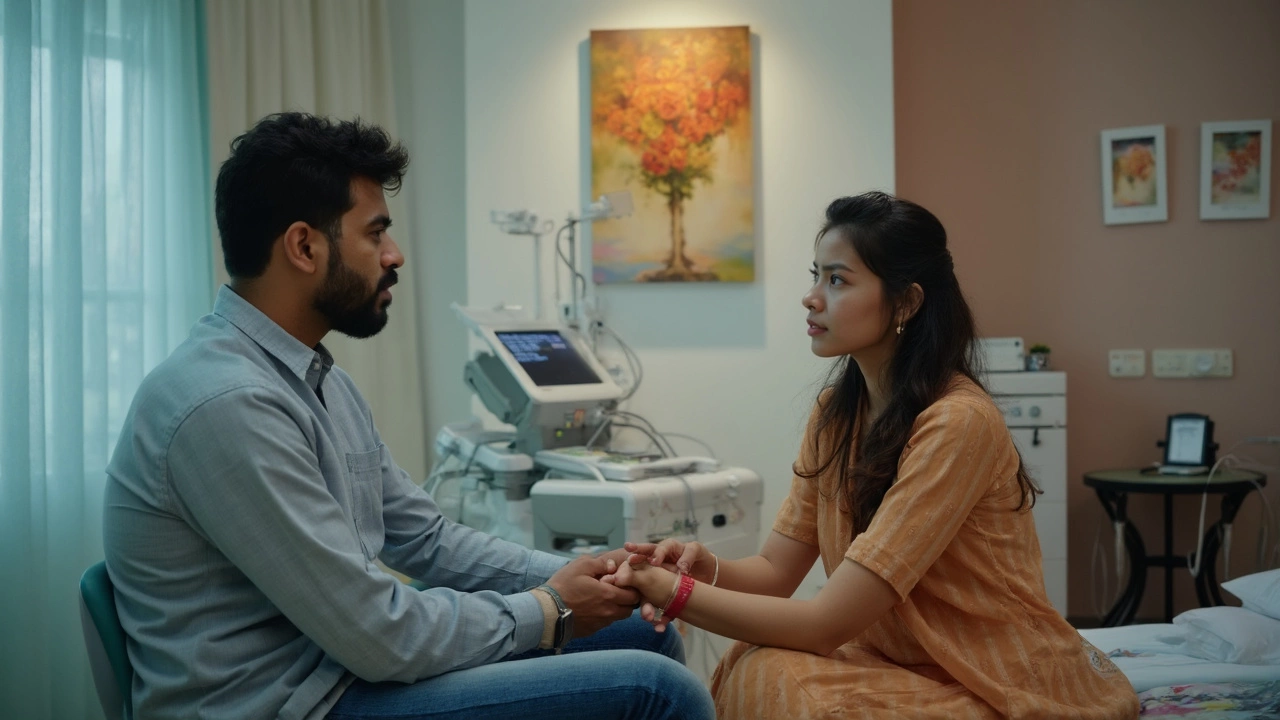IVF, or in vitro fertilization, has become a popular choice for couples struggling with infertility, but it comes with its own set of challenges. Potential side effects include physical discomfort, emotional stress, and financial strain due to the high costs involved. There's also an increased risk of multiple pregnancies, leading to further complications. Understanding these disadvantages is crucial for anyone considering this treatment.
Read MoreIVF Disadvantages: The Real Things You Should Expect
If you’re thinking about IVF, you’ve probably seen the success stories. But every bright side has a shadow, and IVF is no exception. Knowing the downsides helps you weigh the whole picture, avoid surprise setbacks, and decide if it’s the right move for you.
Health risks and possible side effects
IVF involves hormone shots to stimulate the ovaries. Those drugs can cause mood swings, headaches, bloating, and hot flashes. Some women develop ovarian hyperstimulation syndrome (OHSS), which feels like severe abdominal pain, swelling, and shortness of breath. In rare cases, OHSS can require a hospital stay. The egg‑retrieval procedure can also bring bruising, infection, or bleedings, though these are uncommon.
Emotional and financial tolls
The emotional roller‑coaster is real. You’ll face high hopes, appointment fatigue, and the sting of possible failure. Even a single failed cycle can feel crushing. Add to that the money side—IVF can cost anywhere from ₹1.5 lakh to ₹3 lakhs per cycle in India, and many couples need more than one round. Insurance rarely covers the full amount, so the expenses pile up fast.
Success rates aren’t guaranteed. Age is the biggest factor; women under 35 have about a 40‑45% chance per cycle, but that drops to under 10% after 40. Multiple cycles improve odds, but each round repeats the physical and emotional strain.
Another hidden drawback is the risk of having multiples—twins, triplets, or more. While a twin pregnancy might seem like a bonus, it brings higher chances of pre‑term birth, gestational diabetes, and delivery complications. Doctors often recommend cutting the number of embryos transferred, which can lower the chance of a pregnancy on that specific cycle.
There’s also a chance of long‑term health impacts. Some studies suggest a slight increase in ovarian cysts or certain cancers after repeated hormone exposure, though evidence isn’t conclusive. Still, it’s worth discussing these possibilities with your doctor and monitoring your health over the years.
Finally, IVF can affect relationships. The stress of timing, medical appointments, and the financial load can create tension between partners. Open communication and counseling can help, but many couples find the process strains their bond.
Bottom line: IVF can be a powerful tool, but it comes with real downsides—health risks, emotional wear, high costs, and uncertain success. Talk openly with a fertility specialist, weigh the pros and cons, and make sure you’re prepared for both the good and the tough parts before you start.





